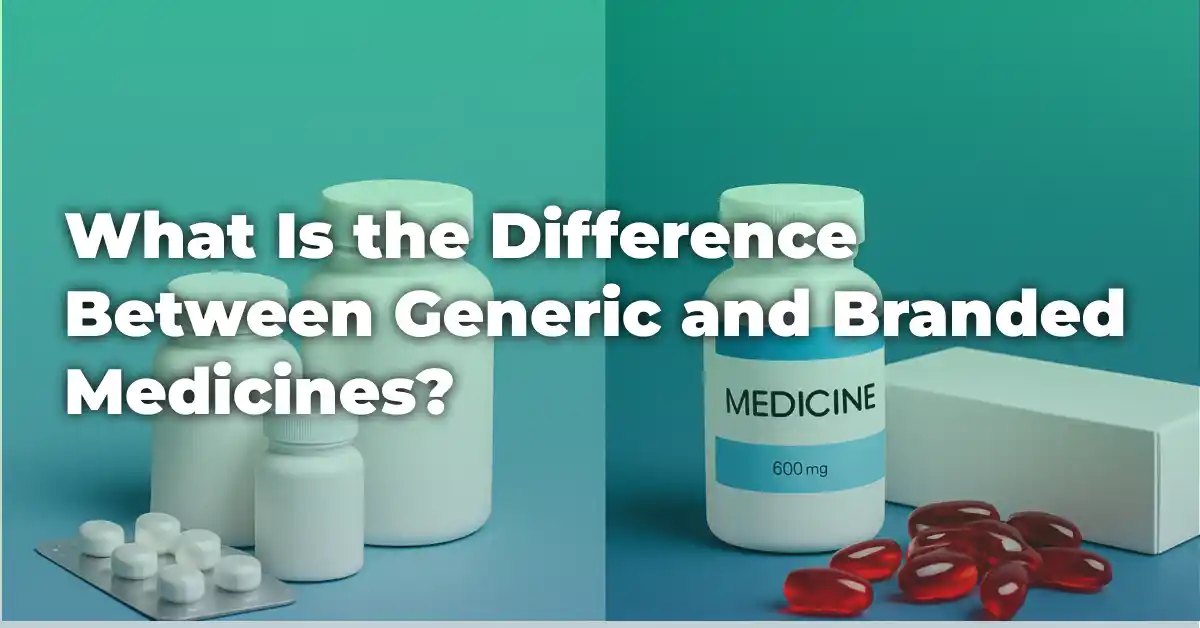Same Drug, Different Price–What Is Going On?
If anyone has ever purchased medicine from the store and noticed two different forms of the same medicine-one is very costly while the other is surprisingly affordable-well then, you are not the only one. This is a pretty common question at pharmacies, hospitals, and generally households alike:
Differentiate generic and branded medicines.
At first, it sounds like it might be complicated, but it is really very simple in its most basic question. In this post, we will explain to you the key differences in plain, jargon-free language-such that whether you’re a pharma business owner or someone managing family healthcare, you’ll know what exactly you’re paying for.
What are the Branded Medicines?
Branded medicines are original products developed by pharmaceutical companies. They spend years (though often costing billions of Rupees) on research, clinical trials, approvals, and marketing of these drugs. Once approved by regulatory bodies, the drug is marketed under the brand name-an easy-to-remember, easy-to-market one such as Augmentin or Lipitor, thus having a brand equity for a period of time (known as a patent) within which the company can recover R&D costs. Exclusivity granted is among the factors making branded drugs costlier than generic drugs.
So what are Generic Medicines then?
Generic medicines are actually the same drug just without the brand name. When a patent on a branded medicine expires, other companies can bring to market the same formulation-same active ingredients, same dosage, same safety profile-but under a different name and often at a lower price. So, when we talk about what is the difference between generic and branded medicines, the short answer is: branding and cost, not quality or effectiveness. That’s the deal: Generics must be approved by regulators such as DCGI (India) or FDA (US) They go through bioequivalence tests to prove they have the same action as the original They are held to the same manufacturing standards So they’re not cheap versions of themselves: cost-effective alternatives in fact.
Why Are Generics Cheaper If They Are Same?
This is one confusion most people cannot miss. But the rationalization is quite logical.
Generic manufacturers, unlike those of original medicines, do not spend on:
- Years of clinical trials
- Brand marketing
- Attribution to patent protection
They, thus, save the cost and pass it on to consumers. This is the reason most of the times generics are cheaper by 50-80% as compared to branded ones. It is a very important point in explaining what is the difference between generic and branded medicines to anyone unclear on this before making the switch.
Any Real Differences?
Mostly in packaging, name, and price; the difference is, however, very rare and is likely true only for patients who may have some slight different reactions to a generic, usually because of some inactive ingredients, such as fillers or preservatives, rather than the actual drug. In such situations, doctors may have to stick with branded ones, for instance, if the patient is sensitive to a particular medical condition, or has a certain experience with a drug.
For the final most part, all generic drugs would prove safe and effective for persons and conditions.
Conclusion: Know What You Are Paying For
In essence, what differentiates a generic medicine from a branded medicine? Labeling rather than scientific differentiates them.
The branded drugs set the reputation, the ground work, and bring new drugs to the market. The generics pick and bring those treatment benefits down into affordable, wide availability.
Contact Us : https://paxterlifesciences.com/
Follow Us : https://www.instagram.com/paxter_lifesciences/






